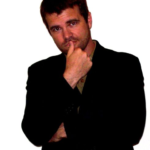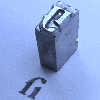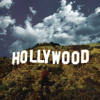
 First, check out the Guardian’s piece on Philip Roth’s prediction that novel-reading will become a “cult” phenomenon within a quarter century.
First, check out the Guardian’s piece on Philip Roth’s prediction that novel-reading will become a “cult” phenomenon within a quarter century.
Go ahead. Read it. I’ll wait.
Now, let me tell you why I disagree. And, I’ll try to avoid resorting to wishful thinking, personal anecdotes, and ad hominem references to Roth’s literary pattern of heroically gilding the past (specifically the 30s and 40s) even as he cynically (and ironically/hypocritically?) critiques optimistic American principles as mere camouflage for socio-political evils.
First, here is Roth’s basic premise:
To read a novel requires a certain amount of concentration, focus, devotion to the reading. If you read a novel in more than two weeks you don’t read the novel really.
I’ll grant him that reading certain novels which — at 160+ thousand words and lots of text that advance* neither plot nor symbolic theme — drag out to the length of what could be two or three more concise and coherent books, might prove a test of optical-mental discipline.
But, to claim that taking a long time to finish a novel somehow demonstrates a lack of discipline seems absurd. Reading a novel during a week off is easy. Reading a novel over three or more weeks implies that something is going on that threatens the reading process, and the reader is fighting to read.
That’s dedication.
It may not bode well for the publishing industry, given the implied rate of purchase, but to maintain connection to a book over a longer period of time indicates that the reader is returning to the novel in spite of other activities in his or her life (9-to-5 job, kids, relationship drama, sick friends, car trouble, political activity, etc.) that distract from reading.
It also implies that Roth hasn’t really thought his theory through, in light of the way that the lives of real people work. His theory wraps up thusly:
The book can’t compete with the screen. It couldn’t compete [in the] beginning with the movie screen. It couldn’t compete with the television screen, and it can’t compete with the computer screen … Now we have all those screens, so against all those screens a book couldn’t measure up.
This indicates that Roth (who, as I promised not to mention, idolizes the past) doesn’t really grasp modern technology. Firstly, books actually did compete with the movie screen; publishing didn’t die after the introduction of movin’ pitchers. Secondly, books also competed well with the television screen.
In fact, books exploited and benefited from those two screens. If you don’t believe me, stack up a DVD collection of every season of every version of Star Trek, plus every Star Trek movie. Next to it, stack up every Star Trek novel ever sold that made returns on investment.
Now, lease some storage space in which to store that mountain of paperbacks.
Does that count as a Thirdly? If not: Thirdly, Roth is creating a false sense of written fiction being outnumbered by film and television and the web, by drawing too bright a line between these “screens.” Particularly in the Internet Age, the idea that television, cinema, and computers are separate “screens” is tragically lacking in vision and rational insight.
Just ask Hulu.com.
I first watched Planet of the Apes (the original, without Heston’s ironic gun-control message) on the small screen. I preferred the Fugitive movie to the TV show. Some readers have commented that my scenes are paced more like scenes in a movie than in a conventional novel, and I have to admit that I think a lot about visual framing when I describe imagery: panning, zooms, cuts…
A more apt image than Roth’s multiple warring screens, I think, would be multiple facets of the same gem reflecting and refracting into each other, the gem being creative fiction. The new e-readers will certainly change the shape of that gem, forcing new business models, but the idea that people will simply abandon novel-reading is as short-sighted as the perennial hand-wringing about films that run too long.
Movies that keep the viewers’ interest for over 90 minutes will outdo shorter stinkers at the box office every time. Likewise, the survival of the novel has less to do with how long they are and more to do with how interesting they are.
_
* Lots [of text] advance. Beat you to it.
 I watched Warcraft this past weekend. Throughout the first half of the film, I was confused. The story wasn’t boring, but it was somehow unsatisfying. The characters were well-defined, but were not engaging. The dialogue wasn’t bad, but it kept falling flat.
I watched Warcraft this past weekend. Throughout the first half of the film, I was confused. The story wasn’t boring, but it was somehow unsatisfying. The characters were well-defined, but were not engaging. The dialogue wasn’t bad, but it kept falling flat.


